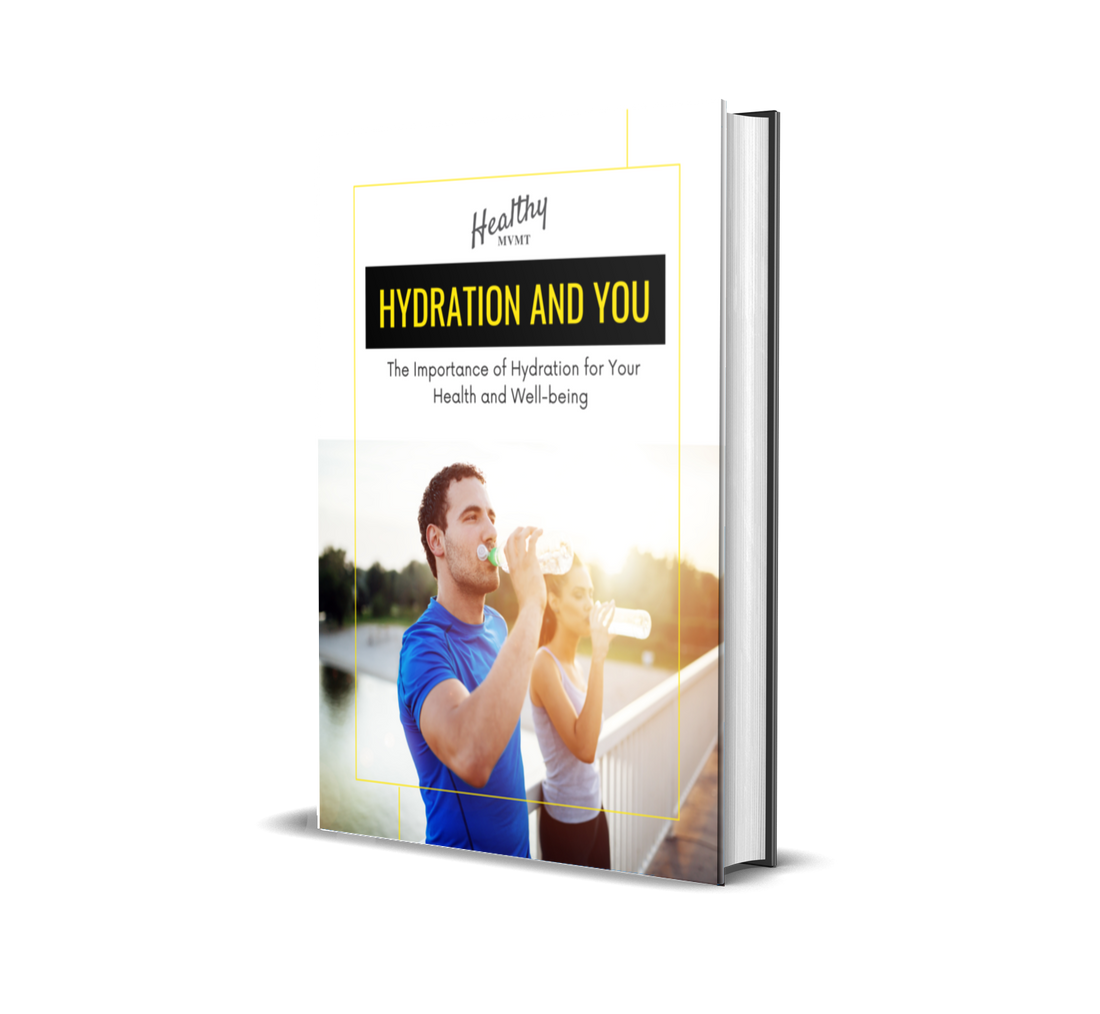The following is an excerpt from our book, Hydration and You. A FREE eBook available in our store.
Want to know just why it is so important to get your daily intake of water? Download this book now. It has seven chapters covering all of the ways our body needs water for a happy, healthy lifestyle.
Chapter 2: How Much Water Do You Need?
In this chapter, we will discuss the amount of water that your body needs to function properly. We will look at the different factors that can impact your hydration needs, including age, gender, and activity level. We will also discuss how to calculate your individual hydration needs and provide tips for making sure you get enough water throughout the day.
Explanation of how much water the body needs on a daily basis
A general guideline is to drink at least 8 cups (64 ounces or 1.9 liters) of water per day. This maintains the body's fluid balance and prevents dehydration. It is important to note that this is an estimate, and individual water needs may vary. It is always best to consult with a healthcare professional to determine your specific hydration needs.
Discussion of how hydration needs can vary based on age, gender, and activity level
Water intake needs can change based on age. Infants, for example, have different water needs than adults.
Here are some general guidelines for recommended daily water intake by age:
Infants: From birth to six months, breast milk or formula provides adequate hydration. For infants 6 to 12 months old, around 4-8 ounces of water per day can be introduced. This is in addition to breast milk or formula.
Children: Children aged 1 to 3 years old require around 32-40 ounces (1-1.2 liters) of water per day. Children aged 4 to 8 years old require 40-56 ounces (1.2-1.6 liters) of water per day.
Adolescents: As children transition into adolescence, their water needs increase. Teenagers aged 14 to 18 years old require around 64-88 ounces (1.9-2.6 liters) of water per day.
Adults: Adults generally require 64-96 ounces (1.9-2.8 liters) of water per day. Depending on factors such as body weight, activity level, and climate.
Older adults: As people age, their sense of thirst can decrease, which can make it more difficult to stay hydrated. Older adults should try to drink around 64-80 ounces (1.9-2.4 liters) of water per day. Possibly more if they have a medical condition that requires additional hydration.
It's important to remember that these are general guidelines. Individual water needs vary depending on factors such as activity level, climate, and overall health. Consult with a healthcare professional to determine your specific hydration needs.
Overview of tips for staying hydrated throughout the day
Staying hydrated throughout the day is essential for overall health and well-being. Here are some tips for staying hydrated:
Drink plenty of water. This may seem obvious, but drinking water is the most effective way to stay hydrated. Keep a water bottle with you throughout the day and sip on it regularly.
Eat hydrating foods. Many fruits and vegetables contain a high percentage of water and can help keep you hydrated. These include watermelon, cucumbers, and oranges.
Avoid sugary and caffeinated drinks. Drinks like soda, coffee, and energy drinks can actually dehydrate you. If you do choose to drink these beverages, be sure to drink plenty of water as well.
Set reminders. It can be easy to forget to drink water throughout the day. Set reminders on your phone or computer to drink water at regular intervals.
Keep water nearby. Keep a water bottle or glass of water within reach, whether you're at work, at home, or on the go.
Monitor your urine color. The color of your urine can be a good indicator of your hydration level. If your urine is pale yellow or clear, you're likely well-hydrated. If it's darker, you may need to drink more water.
Drink water before, during, and after exercise. When you exercise, you lose water through sweat. So it's important to drink water before, during, and after exercise to stay hydrated.
Remember, staying hydrated is important for your health, so make it a priority to drink plenty of water throughout the day.

